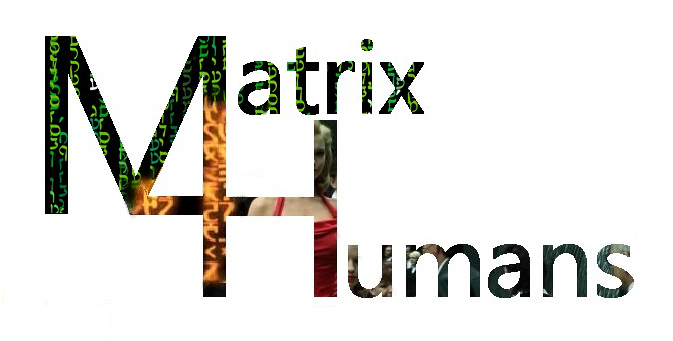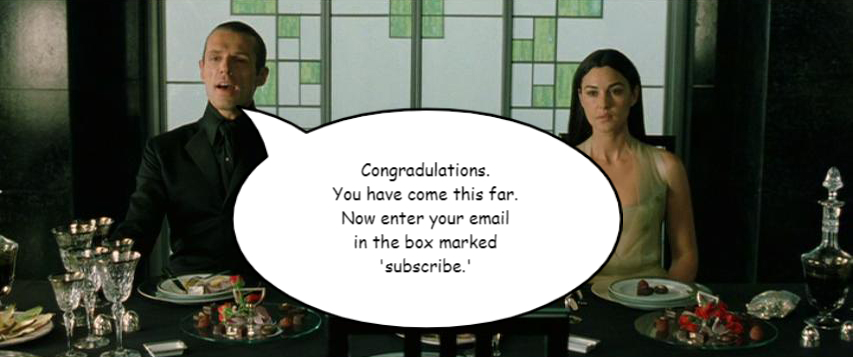“The Philosophy of The Matrix”
with … filmmakers Kee Ramsorrun and Andrew Maclean


Kee and Andrew engage in a lively discussion of the philosophical, theological and cinematographic aspects of the first Matrix movie. (Broadcast date: July 14, 2020)
CLICK HERE TO GO DIRECTLY TO THE DISCUSSION
(Approximately 2 hours, including Matrix clips.)
Comments from Tovia at Matrix4Humans (First draft)
- This was enjoyable to listen to as Kee and Andrew covered a number of perspectives. It was great dialogue with a keen sense of humor throughout – I recommend viewing it. I took some fast notes (below in chronological order). This is a first draft, so excuse any missing elements, poor grammar, etc. I’m not going to expand on the philosophical views or movie creation elements, as they are not my areas of expertise – I leave that with Kee and Andrew. Rather, I will relate their thoughts back to my own kabbalistic perspective and this Matrix4Humans project and its articles. (Again – this is a quick first draft, so be kind!)
- As Kee and Andrew mentioned, the Matrix brings in many philosophical, religious and psychological themes, and people around the world experience different things from it, and all have their own perspectives. Yet, there remains a rather universal feeling that “there is more” to these movies. We address this in the introductory article of our Knowledge Base. (By the way Kee, I too love the second and third movies. They are loaded with deep concepts! You should point Andrew to this web site!)
- Regarding the idea that was expressed, of a creative work now going out to and ‘belonging to’ those who enjoy it, and also not being ‘limited’ to one perspective – this is so true. No other movie in history has spawned so many discussion groups, blogs, web sites, etc., that present a multitude of experiences.
- ‘Choice’ is brought up early by Kee and Andrew, and is a major discussion point in multiple articles in the Knowledge Base. As we show, ‘choice’ is part of a process that begins with the condition we find ourselves in and the connections we attain following the choices we make.
- Regarding the character of Cypher, we get to the core of his problem on this M4H web site, which is allowing doubt to creep in, and discuss this on his Profile Page. Andrew, with his theology education, should especially enjoy the comparison between Cypher and the characters in the Biblical book of Numbers, that we present. The parallels in the dialogues are remarkable.
- They briefly bring up ‘dreams’ which we address as existing in a realm spanning between the physical and spiritual realms in this article.
 The red pill, as we presented in our Knowledge Base, represents the concept of ‘restriction’ that precedes all advancement. (This is called ‘tsimtsum,’ and is the process of making room for something new to enter.) On a side note, if you’ve ever seen the movie “Life of Pi” – an outstanding film – the ship the main character was on, which ended up sinking and beginning Pi’s journey, was named “Tsimtsum.” (See movie image I posted.) This is reflective of how Pi had to restrict his views on reality to make room for a new perspective.
The red pill, as we presented in our Knowledge Base, represents the concept of ‘restriction’ that precedes all advancement. (This is called ‘tsimtsum,’ and is the process of making room for something new to enter.) On a side note, if you’ve ever seen the movie “Life of Pi” – an outstanding film – the ship the main character was on, which ended up sinking and beginning Pi’s journey, was named “Tsimtsum.” (See movie image I posted.) This is reflective of how Pi had to restrict his views on reality to make room for a new perspective.- Regarding ”numbers’ in the Matrix movies, we discuss the “101 Connection” between Neo and the Merovingian as well as other less overt but amazing ‘gematria’ (spiritual geometry) connections that exist behind the scenes and explained in kabbalistic texts. They also spoke ot the number ”7″ – that and other number issues are also brought up in our article on gematria We will have another article later on with more complex examples.
- As they mention, the broken mirror is indeed reflective of our fragmented view, along with the thunder in the Matrix world and lightning in the ‘real world’ that Kee mentioned. Again for the theologian Andrew, I’d point to Paul’s comment in 1 Corinthians Chap 13 verse 12: “For now, we see through a mirror, an enigma.” Another kabbalistic aspect to the mirror, goes like this: “As we become more fractured, we get closer to the nothingness of the Source.”
- The ‘physical’ elements Kee and Andrew mention (the cold feeling when Neo starts his transition, the water slide, the ‘gooey stuff’ when he ‘awakens), are not only experienced by the character himself but draw the audience into the same ‘level of existence’ that Neo is in. This is one of the most profound concepts of the movie. The progression Neo makes from one movie to the next, is one the viewers themselves can experience in their own life. That ‘feeling’ people get about the movies – that there is more to them that they can explore, goes right back to the mirror and 1Corinthians 13:12.
- In the Oracle scene, we present a kabbalistic explanation of the “spoon boy’s” message for Neo. This has both psychological and spiritual connections.
- As for some things the Oracle said, “not being true” — I’m not sure what Andrew was referring to exactly. She uses reverse psychology and other means to provoke Neo to reconsider his view of reality (see ‘tsimtsum’ above.) This is a constant theme mentioned through here Baking Noodles with the Oracle blog posts.
- Concerning the lineage of Jesus in Matthew. There’s 4 women mentioned in it — all with ‘peculiar’ issues — which is another messianic discussion that the Matrix relates to. The messiah in Judaism is supposedly a person of “no special” lineage – even a “questionable” one. And there’s a reason for this which is to ‘sneak him into the world’ past the elements of the ‘other side’ (Sitra Achra). i.e., “even realm.” The same was done with Neo, was ‘no big deal’ to the agents early on – they saw him only as a minor criminal and not a ‘threat.’ This preserved his life before he entered the ‘real world’.
- The Temet Nosce sign (“Know Thyself”) in the Oracle’s kitchen, as we discuss through the Knowledge Base, relates to the “Path of the One” in kabbalah – the path and means of advancement that we are all here to learn and follow. Perhaps there is some intentional (?) ‘misdirection’ between the Oracle (a Greek figure) and the sign (written in Latin), as the essence of both in the movie is not so Greek or Latin.
- Kee made a great observation regarding the ‘five senses’ displayed in the first meeting of the Oracle and Neo. This happens to be discussed in the same Baking Noodles With the Oracle Blog 1.1 and relates back to the comment above in terms of connecting the audience to Neo’s present level of existence.
- You guys are so mean to poor old Tank (aka Marcus Chong) … LOL. To quote from the 3rd “Indiana Jones” movie, “He did not choose wisely.”
- Andrews’s phrase, “Breaking the code from the inside out,” is ironically how we define the purpose of this Matrix4Humans project. Presenting all of the concepts, characters, and their interrelationships, in a manner never seen before.
- FINALLY to Kee and Andrew … The entire ‘kiss,’ ‘love’ and resurrection of Neo scene MAY seem hackneyed … but on a kabbalistic level it is very deep. Yes, we have an article on the KISS too! This is one of the more amazing articles on the site in terms of how the concepts align in the movie. The Matrix IS above all else, a love story. But not the usual type of love story. It is the love story between the “divine bride and groom” as we discuss in several articles. By the way, this is going to be an amazing revelation in the 4th movie … just wait. 😉
Peace!

